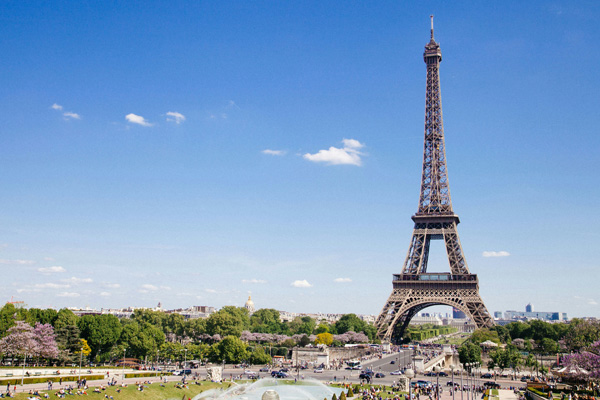Paris unveils ambitious climate plans for the Olympics, emphasizing sustainability and cycling

[Eiffel tower, Paris, France, Photo Credit: Unsplash]
In the lead-up to this year's Summer Olympics in Paris, the city's remarkable transformation into a global cycling hub takes center stage, offering a beacon of hope for sustainable urban mobility and environmental stewardship worldwide.
This year's Summer Olympics, which will take place in Paris from July 26 to August 11, 2024, present a chance to showcase a city that has made the decision to prioritize people and the environment with considerable authority and a chance to encourage other cities to follow suit throughout the world.
With a goal of becoming the world's best cycling city, Paris has started a transformational journey that is having an impact well beyond its boundaries.
With everyone's focus on the spectacle that is the Olympic Games, Paris's unwavering dedication to advancing sustainable mobility has the potential to ignite a global movement.
At least 415 km of bike routes are scheduled to be added in the run-up to the Games, making them accessible to both locals and tourists in time for the Olympic Games in Paris in 2024 as well as serving as a lasting legacy for the city after they are finished.
A significant aspect of the legacy of Paris 2024 is getting closer to reality.
The Ministry of Transport released a map of the 415-kilometer cycling network that will be finished in time for the 2024 games.
“As it stands, 320km of the routes have been completed which will see Parisians and visitors able to ride from Bercy Arena in the 12th arrondissement down to the Place de la Concorde and Grand Palais in the eighth and beyond,” stated the French Minister Delegate for Transport Clément Beaune.
“The Trocadéro, Eiffel Tower, Roland Garros, and Parc des Princes will all also be accessible on two wheels.”
“We will have 418 km of bike lanes as a legacy after the Games,” continued Beaune.
“Local authorities and the city of Paris are in the process of increasing the service offer, the city has announced more than 3000 Vélib [public bicycles] and then there are private operators who are present and ready to strengthen their offer,” Beaune emphasized, referring to the need for 15 to 20,000 additional bicycles.
Since then, Paris has kept moving forward, transforming into a beautiful city that prioritizes people over cars in an increasing number of spaces and the use of bicycles.
Paris is launching its ambitious 2024–2030 Climate Plan in an unprecedented attempt to become a more eco-friendly and sustainable city.
This comprehensive initiative is supported by a commitment to expedited, localized, and equitable climate action, with an emphasis on meaningful changes that resonate with residents on a daily basis.
It was scheduled for presentation to the Paris Council in December 2023 and approved by elected officials in 2024.
These initiatives will have the chance to be shown off at the Olympics in Paris.
According to Mayor Anne Hidalgo, "the city's vision is centered around an overarching plan to prioritize cycling infrastructure, with the goal of creating a more connected and accessible urban landscape for cyclists."
“Paris intends to significantly expand its cycling network by 2026, adding 130,000 bicycle parking spaces and 180 kilometers of new bike paths."
"This cycling-centric approach aims to promote sustainable and healthy mobility options for residents while also mitigating pollution associated with automobile traffic."
Additionally, Paris is currently implementing a plan to become a 100% bike-friendly city.
"The number of Parisians who commute increases with every new bike path!"
In a recent post on social media, Mayor Hidalgo emphasized this.
She adds, "Similarly, the recently installed cycle path on rue du Renard in Paris Center has rapidly drawn new cyclists."
Paris plans to implement "pedestrian hearts" in every district by the end of 2024, beginning with a citywide Limited Traffic Zone (ZTL).
Motivated by the superblocks in Barcelona, this project avoids car-centric behavior by designating spaces for users, bicycles, pedestrians, and public transportation.
Green spaces and community involvement are promoted by these superblocks, which give priority to infrastructure for cyclists and pedestrians.
In order to reduce tourist buses in the city center by 2024 and create pedestrian centers in every district by 2026, Paris's plan is similar to Barcelona's sustainability goals.
The city's beauty during the Olympics is showcased by these initiatives, which also demonstrate Paris's commitment to improving sustainability and bike friendliness while reducing reliance on cars for a resilient urban future.

- Jimin Youn / Grade 11
- Seoul Academy Upper Division

![THE HERALD STUDENT REPORTERS [US]](/assets/images/logo_student_us.png)
![THE HERALD STUDENT REPORTERS [Canada]](/assets/images/logo_student_ca.png)
